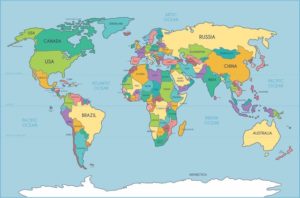The Unnerving Idea of “Total War” With Russia and China

I’ve been doing business in Russia and China for more than 40 years. During that time, I’ve had nothing but good to very good business experiences. I’ve also had nothing but good experiences with the Russians and Chinese I’ve met and worked with over that time.
As a result, I’ve never been able to see those countries as existential threats to the US. Nor can I generate any animosity toward or fear of Russian and Chinese people. I don’t feel like I’m being naïve. I recognize that our governments are competitive. And that China’s economy is nearly as large as ours and growing more quickly. I see Russia’s invasion of Ukraine as a response to Putin’s fear of having another NATO ally on their border. But I also believe the invasion is an act of war that must, in some way, be opposed.
I also see this development as a predictable outcome of the Cold War that never really ended. In fact, it has been predicted and planned for by US and Russian military strategists for decades. There is this concept called “total war” that is part of that planning. If you haven’t heard of it, you may find it alarming. Click here to watch an expert talking about it.

Bureaucratic business regulations are not just a nuisance, but a considerable cost to businesses. They reduce productivity and make financial objectives more difficult to accomplish. Undoubtedly, some regulation is necessary to limit bad business practices. The challenge is always to outlaw the bad things without curtailing the good ones.
It’s bad in the US. But it’s even worse in the European Union. (I know. My partners and I have businesses in England, France, Germany, and Spain.) In addition to the umpteen regulations negatively impacting the production of goods and services, the EU has created hundreds of rules meant to “protect” employees from every imaginable form of workplace abuse.
Click here to read about one of them.

I’ve mentioned this before. In recent years, I’ve become increasingly skeptical of the claims made about electric cars and trucks. They were introduced as a major weapon in the war against global climate change. They were sold as eco-friendly because they don’t emit CO2, a key factor in the disintegration of the ozone layer.
But the surprising fact is: They do. In fact, when the math is done correctly, their production of CO2 is actually greater than gas-powered cars. As Graham Conway explains in this TED Talk, electric cars will likely play an important role in the future. But as things stand today, they are not what most people believe them to be. Click here.
